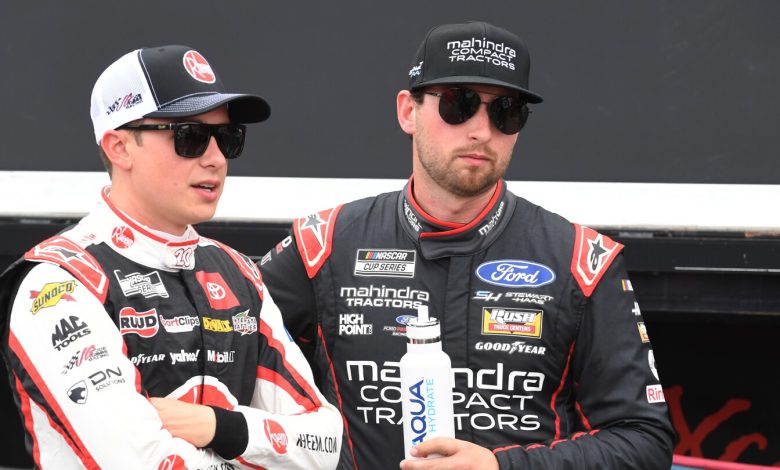Breaking: Good and Bad News for NASCAR

**Breaking: Good and Bad News for NASCAR**
NASCAR, a cornerstone of American motorsport, is experiencing a rollercoaster of developments this season, with both promising growth and significant challenges. While the sport is thriving in some areas, certain issues are casting a shadow over its future. Here’s a breakdown of the latest good and bad news facing the world of NASCAR.
### The Good News: Expanding Popularity and Innovation
NASCAR is seeing a surge in popularity, driven by several factors that have reinvigorated the fanbase and drawn new audiences to the sport. One of the standout stories of the season is the continued success of the **Next Gen Car**, which debuted in 2022. The new car has led to more competitive racing, with closer finishes, more aggressive driving, and an overall increase in excitement on track. The introduction of the Next Gen Car has been hailed as a long-overdue innovation that has helped NASCAR stay relevant in an era where other motorsports, including Formula 1 and IndyCar, have been ramping up their global appeal.
Another positive development is **NASCAR’s expanding TV ratings and audience base**. According to recent reports, television viewership for key events has increased, and the sport is attracting younger fans through more diverse marketing efforts and partnerships. The **partnership with sports betting companies**, while controversial in some circles, has helped NASCAR tap into a new generation of fans who engage with the sport through fantasy leagues, betting platforms, and digital content.
Additionally, **NASCAR’s push for inclusivity** has been evident through its initiatives to diversify both the driver lineup and its fanbase. The increasing presence of women, such as driver Hailie Deegan, and rising interest from underrepresented groups, are signs of NASCAR’s evolving landscape. These efforts are starting to bear fruit, with new drivers emerging and broader appeal.
### The Bad News: Financial Struggles and Controversy
However, not all news for NASCAR is positive. One of the major hurdles facing the sport is the **ongoing financial struggles of many teams**. While NASCAR itself is thriving, the sport’s lower-tier teams are experiencing difficulties in securing sponsorship and managing costs. The Next Gen Car was designed to be more affordable and equitable for teams, but many smaller teams are still feeling the pinch of rising operational expenses. This financial strain is leading to concerns about the viability of some teams, especially those that rely on a single sponsor or driver to stay afloat.
**Sponsorship fatigue** is a significant issue as well. As major corporations pull back on spending, NASCAR has seen a decrease in the number of sponsors willing to commit long-term to teams. The shift away from traditional corporate sponsorships, often tied to industries like beer, fast food, and automotive, has made it harder for teams to secure the necessary funding. This financial uncertainty is putting a strain on the sport’s overall growth, particularly in the lower rungs of the racing series.
### Legal and Regulatory Issues
Another storm cloud on the horizon involves **legal and regulatory issues**. Recently, NASCAR has faced criticism regarding its handling of **driver safety protocols** following a few high-profile incidents. A controversial incident involving a driver and a pit crew member raised questions about NASCAR’s ability to safeguard both its competitors and crew. Although NASCAR has responded by tightening safety regulations, the controversy has led some fans to question whether enough is being done.
Additionally, **NASCAR’s efforts to address environmental concerns** have been met with resistance from some segments of its audience. The push for sustainability, including plans to implement hybrid engines and reduce the sport’s carbon footprint, has sparked debate. While some hail these efforts as necessary for the sport’s future, others feel that NASCAR’s historic image—rooted in traditional combustion engine racing—might be diluted. Striking a balance between innovation and preserving the core values of NASCAR remains a significant challenge.
### Changing Fan Demographics and Engagement
While NASCAR’s fanbase is diversifying, there are concerns about **changing fan demographics** and engagement. The younger generation, while attracted to the sport through digital channels, seems to have a lower level of commitment to attending races in person. Television viewership is up, but **attendance at some traditional NASCAR events** has been declining, especially at long-standing tracks that haven’t kept up with modernization efforts. With a new generation focused more on streaming and social media, the sport has struggled to adapt to new consumption habits while keeping the old guard of fans engaged.
Moreover, the **rise of esports** and virtual racing leagues is posing a challenge to NASCAR’s traditional fanbase. Virtual racing has become a hot commodity, with professional simulators and video games like iRacing capturing the attention of younger audiences who might otherwise attend or watch live events. NASCAR’s partnership with iRacing and its entry into virtual racing competitions has helped maintain its relevance in this space, but it remains to be seen whether these digital platforms can translate into long-term growth.
### Conclusion: A Fork in the Road
In the midst of these mixed developments, NASCAR finds itself at a critical juncture. The good news—booming TV ratings, an evolving fanbase, and technological innovation—shows that the sport is on an upward trajectory in many ways. But there are also serious challenges to address, particularly financial struggles for smaller teams, issues of inclusivity and safety, and evolving fan engagement strategies.
Whether NASCAR can successfully navigate these challenges and maintain its place at the top of American motorsports depends largely on how it balances tradition with innovation. The sport has shown resilience in the past, but as it enters the next phase of its history, it must adapt quickly to maintain relevance in a rapidly changing entertainment landscape. NASCAR fans and industry insiders will be watching closely to see how the sport evolves in the coming seasons.





